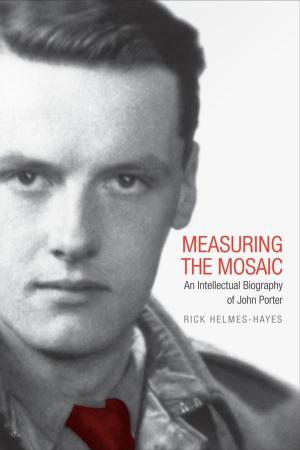From Philosophy to Psychotherapy
A Phenomenological Model for Psychology, Psychiatry, and Psychoanalysis
Nonfiction, Religion & Spirituality, Philosophy, Phenomenology, Health & Well Being, Psychology, Psychoanalysis| Author: | Edwin L. Hersch | ISBN: | 9781487590017 |
| Publisher: | University of Toronto Press, Scholarly Publishing Division | Publication: | July 9, 2003 |
| Imprint: | Language: | English |
| Author: | Edwin L. Hersch |
| ISBN: | 9781487590017 |
| Publisher: | University of Toronto Press, Scholarly Publishing Division |
| Publication: | July 9, 2003 |
| Imprint: | |
| Language: | English |
Presenting a highly innovative exploration of the relationship between philosophical and psychological issues, Edwin L. Hersch argues that psychological theories and practices inescapably rest upon a series of philosophical positions – whether they are acknowledged and reflected upon or not. To examine this proposition Hersch develops his Hierarchy of Levels of Theoretical or Philosophical Inquiry Method, which involves the systematic consideration of a series of philosophical questions pertaining to the ontological, general epistemological, field-specific epistemological, and psychological stances adopted (either explicitly or implicitly) by any particular psychological theory. By using this hierarchical framework the book then attempts to develop a new approach to psychological theory and psychotherapeutic practice based largely on the premises of phenomenological philosophy.
The scope of the book cuts across a variety of theoretical and professional disciplinary approaches within the broad psychological field in demonstrating the relevance of certain philosophical issues for all of them. Clinicians, theorists and students in the psychological field are presented with a palatable introduction to the importance and inevitability of dealing with philosophy in pursuing their own work. Furthermore, his philosophical explications of a variety of psychological theories provide a new tool with which to better understand, compare, or assess any internal inconsistencies.
Presenting a highly innovative exploration of the relationship between philosophical and psychological issues, Edwin L. Hersch argues that psychological theories and practices inescapably rest upon a series of philosophical positions – whether they are acknowledged and reflected upon or not. To examine this proposition Hersch develops his Hierarchy of Levels of Theoretical or Philosophical Inquiry Method, which involves the systematic consideration of a series of philosophical questions pertaining to the ontological, general epistemological, field-specific epistemological, and psychological stances adopted (either explicitly or implicitly) by any particular psychological theory. By using this hierarchical framework the book then attempts to develop a new approach to psychological theory and psychotherapeutic practice based largely on the premises of phenomenological philosophy.
The scope of the book cuts across a variety of theoretical and professional disciplinary approaches within the broad psychological field in demonstrating the relevance of certain philosophical issues for all of them. Clinicians, theorists and students in the psychological field are presented with a palatable introduction to the importance and inevitability of dealing with philosophy in pursuing their own work. Furthermore, his philosophical explications of a variety of psychological theories provide a new tool with which to better understand, compare, or assess any internal inconsistencies.















